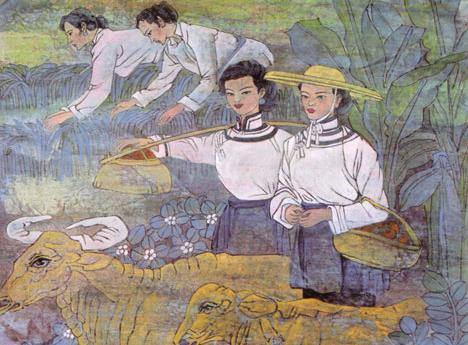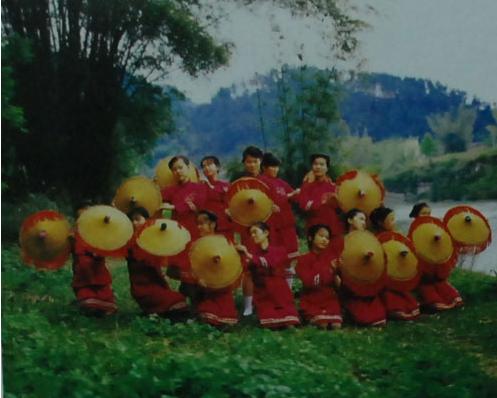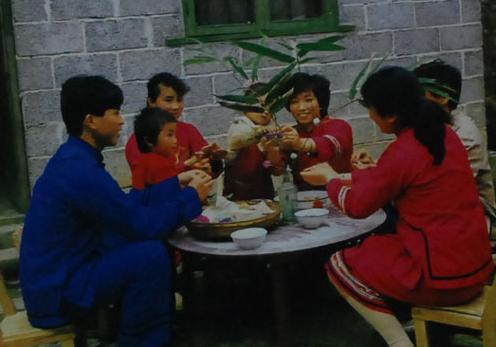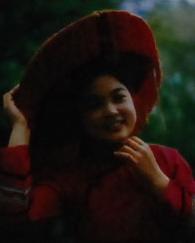
The Maonans, with a population of 71.968, are mainly distributed in Huanjiang County in the northwest of Guangxi Zhuang Autonomous Region. The others live scattered in Nandan, Hechi and Du'an.

The Maonan Bamboo Hat Dance.
The Maonan area is located in the eastern foothills of the Yunnan-Guizhou Plateau. The Maonan Mountain stands in the middle with the Jiuwan Dashan Mountain in the northeast, the Fenghuang Mountain in the northwest and the Dashi Mountain region in the southwest. The rolling mountains are covered with thick forests. Deep karst caves can be easily found. Here the subtropical climate is suitable for crops and cattle.

During festivals, Maonan young people kneed multicolored glutinous rice into small balls and stick them lo a bamboo branch. It is said that the decorated branch will bring a good year for the family.
Farming, supplemented by raising animals and sidelines, is the chief occupation of the Maonans. They grow rice and many other crops.

A Maonan woman.
The Maonans call themselves Anan, meaning "local people". It shows that the Maonans are the aborigines of this area. Ancestors of the Maonans had some relations with the Liaos before the Tang Dynasty and the Lings of the Song, Yuan and Ming periods. In history, they were known as "Maotan", "Angtan", and "Maonan" successively.
The Maonan language belongs to the Dong-Shui branch of Zhuang-Dong Group of the Sino-Tibetan family. The language has no written form. In the past, Chinese characters were used to record Maonan folk songs. This method of transliteration was called the Tusu script. At present, Maonan people speak both the Zhuang language and Chinese and write in Chinese.



